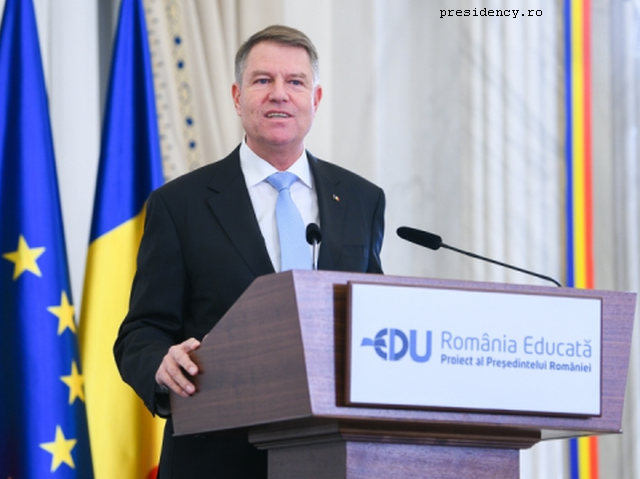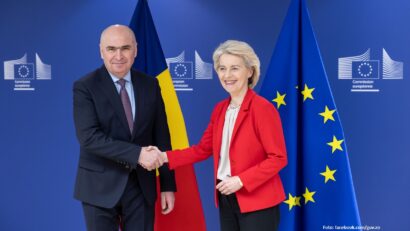Educated Romania, a strategic project initiated by the Presidency
The “Educated Romania project has been put up for public debate by President Klaus Iohannis. It is aimed at resetting Romanian education based on criteria compatible with the needs of the future

Mihai Pelin, 06.12.2018, 15:11
The evolution of the Romanian education system has been rather unstable in the past 30 years. With 27 different ministers at helm and an education law that has been adjusted about 200 times in the last seven years alone, the Romanian education system has been dealing with many other problems. Under these circumstances, the Presidential Administration has launched the project “Educated Romania”, which is in fact a strategy to be put into practice by 2030.
According to President Klaus Iohannis, the project is aimed to recreate a value-based society and develop a success culture based on performance, work, talent, honesty and integrity. After being open to public debate for three months, the project will be negotiated by President Iohannis and political parties so that it is introduced into the government policies. According to President Iohannis, the “Educated Romania” project is also meant to contribute to the development of an education system for the 21st Century, a stable, sustainable and performing system.
Klaus Iohannis: “Educated Romania is a strategic project that wants to create the foundation of the education system for Romania of the 21st Century. Educated Romania is not a draft law. Educated Romania is not a simple recipe and is not my electoral programme. Educated Romania is our Romania, the Romania of all, for the generations to come.”
The project proposes two scenarios of education system restructuring. The first scenario is similar to the present one in terms of the number of years spent in every pre-university cycle. It introduces, alongside the baccalaureate exam, an “applied” exam, that includes a limited number of subject matters as well as practical tests, in keeping with the specificity of each vocational training option.
It gives access to the non-university tertiary education, that is two-year colleges, and then to a one-year or two-year vocational training cycle. The second scenario brings in a change in the structure of pre-university cycles. Thus, the primary education cycle is extended to six years from five at present while the secondary education cycle is reduced to three years instead of four.
The same thing is proposed for the high-school cycle. The baccalaureate covers the basic subject matters — Romanian, Math and a foreign language — and students get to pick three optional subject matters for the exam, including practical tests conducted within a company or another relevant institution.
In keeping with the Educated Romania project, the current school inspectorates, operational in every county and the capital Bucharest, should be closed down. Educated Romania is the most comprehensive and longest public consultation held so far in the field of public policies in education, that enjoyed the contribution of more than 10 thousand people and dozens of public institutions, NGOs and representatives of decision-makers in the field.






























